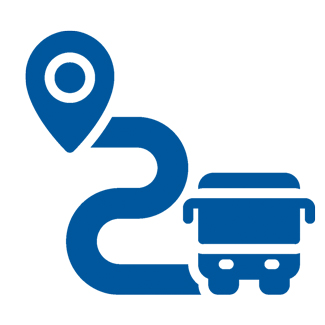December 2, 2022
 It’s one thing to build an electric bus. It’s quite another to optimize a whole metropolitan area’s electric transit fleet. How do you set up routes to get the most out of a charge? How much do factors such as weather, hills, and frequent stops impact battery performance?
It’s one thing to build an electric bus. It’s quite another to optimize a whole metropolitan area’s electric transit fleet. How do you set up routes to get the most out of a charge? How much do factors such as weather, hills, and frequent stops impact battery performance?
Erica Eggleton (Ph.D. ‘22) tackled these questions and more for her dissertation work in professor Dan Schwartz’s lab. The work combined Schwartz group expertise in physics-based battery modeling with a systems-level approach to battery efficiency. She created an open-source Python software package called route_dynamics that uses geographical information, ridership numbers, and vehicle acceleration data to model how batteries perform over different bus routes.
Related story

Champions of Sustainability
Discover how chemical engineers are leading the charge to a greener future
This work began as an industry capstone project at the intersection of data science and clean energy. Partnering with King County Metro, a national leader in transitioning to a fully electrified bus fleet, Erica expanded the scope and functionality of the software, with the aim of helping vehicle fleet managers better plan routes based on battery health and longevity. Ultimately, she had the opportunity to present her work to Washington Governor Jay Inslee during a visit to the Clean Energy Institute.
Since graduating in June 2022, Erica has continued to work on smoothing the transition to greener transit. She has established a consulting business that specializes in energy storage systems and electrified transportation, and offers technical insights and analysis to clients such as electric vehicle start-ups, vehicle manufacturers and transit agencies.